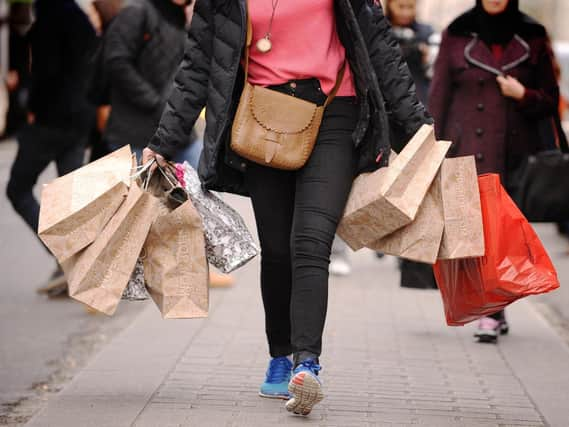British retailers could still be inadvertently profiting from modern-day slavery, report finds


Despite recent legislation forcing retailers to ensure that slavery is not occurring undetected in any part of their business, weak spots still remain for criminals to exploit, according to the report published this week.
Eight people were jailed in July last year following an investigation dubbed 'Operation Fort', which was described by the prosecuting barrister as "the largest human trafficking investigation ever to be undertaken in Europe".
Advertisement
Hide AdAdvertisement
Hide AdVictims were forced to sleep in rat-infested accommodation and work long hours in factories, farms, recycling plants and parcel warehouses through employment agencies, with little to no wages, while members of the gang raked in around £2m.


The West Midlands-based gang routinely supplied exploited victims to chains supplying some of the UK's biggest retailers.
The landmark case prompted a review by Anti-slavery Commissioner Dame Sara Thornton, who claimed that slavery and trafficking crimes were occurring "in plain sight" in the UK.
The report published yesterday (Tuesday) claimed that "no supply chain is safe" and that "UK based organisations cannot afford to be complacent" about the possibility of slavery in this country having a hand in goods sold in our shops.
Advertisement
Hide AdAdvertisement
Hide AdMs Thornton said that, following the case, she wrote to the CEOs of 15 large UK companies such as Asda, Morrisons and B&Q saying their businesses "had a role to play in identifying and preventing exploitation".


All 15 replied, and since then Ms Thornton's review has looked into areas for improvement where companies, employment agencies, letting agents and other authorities can ensure modern-day slavery is not a part of their supply chain.
Lessons to be learned, according to the review, included recruitment agencies carrying out "more effective checks" to detect anomalies such as duplicated bank details across different employees, as well as better educating workforces to spot signs their colleagues may be victims of slavery.
Various retailers meanwhile have put in place tougher measures to ensure no forms of slavery become a part of their supply chains, such as appointing "modern slavery working groups" that can monitor companies' performances.
Advertisement
Hide AdAdvertisement
Hide AdThe passing of the Modern Slavery Act 2015 forced companies with annual turnovers above £36m to publish annual reports into how they were ensuring slavery was not occurring in any part of their chain.


The report said: "The criminal network behind Operation Fort was active before the passing of the Modern Slavery Act and continued for years after. If it is to teach us anything, it is that no supply chain is safe from modern slavery, and that UK based organisations cannot afford to be complacent about their domestic operations, even when addressing high profile atrocities overseas."
Ms Thornton said: "The businesses in which the men and women were exploited supplied goods to major retailers across the UK. Any of us could have unwittingly purchased goods produced by victims of modern slavery in this country."
"It is clear that businesses need to go beyond a box-ticking approach to preventing exploitation," she added.
Advertisement
Hide AdAdvertisement
Hide Ad"I have been encouraged so far by the business response to Operation Fort but we cannot become complacent. We must remain ever vigilant to the activities of those who seek to exploit the labour of their fellow human beings.”